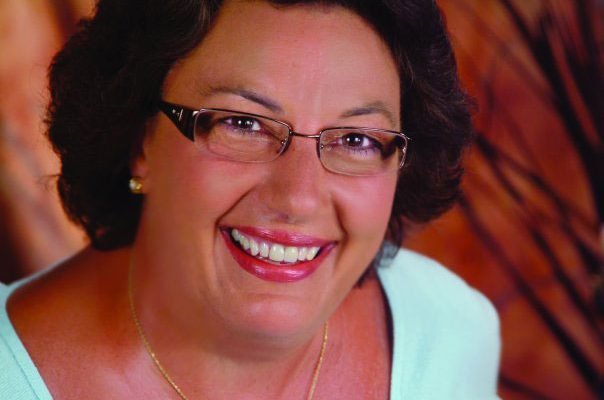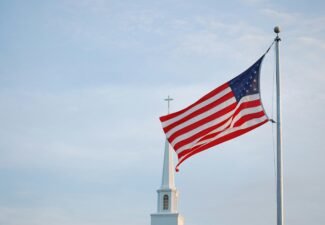What is it about Vanguard that in spite of some real frustrations along the process holds our hearts so strongly in its grasp? I suppose because it’s mostly about community around here. It’s the synergy that is created by everyone living together; the presence of God that seems to permeate the people here.
In this day of radical individualism to talk about community seems a little outdated. In spite of this, there seems to be something that we know down to our collective souls that our reality is ultimately better when we live life together. So bear with me and let me share a few things that I’ve learned about community from Vanguard.
1. Community is NOT about power relationships. By this I mean that within the community of God, no one is greater than the other. We know this principle in our heads and are careful to talk servant language, but the tentacles of having “power over” in a relationship can reach so subtlety into our hearts that we can totally be unaware of its presence. Let me give you an example.
I walked onto Vanguard’s campus in the Fall of 1996 with my teaching contract and my Ph.D. candidacy from USC tucked securely under my arm. I was so anxious to serve students by dispensing the knowledge I had worked so hard for so many years to acquire.
As the days went by, it struck me as amazing that the dozens of students who sat in my classes actually paid to sit there and hear me teach. And even better, were the opportunities to talk one-on-one with many of the students who wanted further explanation of things I had said in class. And the highest compliment was from the students who asked to have coffee with me so we could just share life together.
One day, I walked into work to be greeted by a staff member who said to me, “I came in this morning to get some work done before the work day began. I saw a student standing in front of your office door with her hands extended, tears running down her face, just praying her heart out for you.”
So let me ask the question. Who is really the servant here? I will tell you that I was so humbled by the student’s act that I was immediately made aware of the ugly arrogance that had made its way into my heart. I learned that the idea of servanthood can actually be a mask for our desire to be greater than those we serve.
2. Community can be messy. Community is really about relationships and honestly, we’re really not all that good at it. If we were, things like the divorce rate and statistics for child abuse wouldn’t be quite so high. Simply put, good relationships are hard and they’re hard for several reasons. One of those reasons is that the public self is seldom the real self.
I held the position as Dean of Students at Vanguard for a while and one of the least pleasurable jobs I had was to talk to the students who had exceeded their chapel absences. One young man came in one day to discuss the issue with me and he had the typical attitude that came out in his first sentence: “Chapel is boring so why should I go.”
After a little persistence on my part his story came out. The real reason he didn’t go to chapel was because it reminded him of what he had lost. His ministry of leading worship was taken away from him after his affair with a fellow worship leader was discovered. This was a hurting young man. He was living in the embarrassment and guilt of having failed as a church leader and felt as if God had forsaken him altogether.
I was able to really minister to that young student that day by assuring him that God does not hold our sins against us and that there would be a day when God would renew his call on him after the young man dealt with his issues.
It was messy, but the mask had to come down for healing to occur. Real relationship requires that the people in the relationship be real themselves.
3. Community thrives on diverse opinions and experiences. Being part of a community does not mean that all of us think the same, look the same or even act the same. God’s community is not made up of clones.
Did you know that word “community” never appears in the New Testament? But, the word “fellowship” does. In the Greek NT, it is the word koinōn which means, “to share with someone in something.” Made startlingly clear is that as Christians we are called to fellowship, or better, participate with the Son because we are his “body.” As humans, we actually enter in to a spiritual symbiotic relationship with the risen Lord.
Jürgen Moltmann in his Trinity and the Kingdom explains that the relationship between members of the Godhead, the Son, Father and Holy Spirit, must be understood within the context of perichoresis or a kind of “interpenetration” within the Godhead. He says that this relationship is not exclusive to the Godhead, however.
Every time someone becomes a believer, it is as if the Godhead unclasps hands and welcomes each new believer into that circle of relationship so that we are, as Paul declares, located “in Christ, in God” as Christ’s body. But you’ll notice that when we clasp hands with the Triune God, we are also clasping hands with one another. By nature, fellowship with Christ necessarily means fellowship with other Christians. All of this is based on the fact that “we have drunk from the same Spirit,” not that we are all the same people.
While Vanguard is affiliated with the Assemblies of God, not everyone on campus attends an Assemblies of God church. Neither are we all rich, or thin, for that matter. What makes community work at Vanguard is that fact that we are all one in Christ Jesus; His body; diverse yet unified.
Thank you from heart for teaching me what community is all about.

 Finding God at Vanguard
Finding God at Vanguard Opinion: We Shouldn’t Keep Faith out of Politics
Opinion: We Shouldn’t Keep Faith out of Politics
Leave a Reply